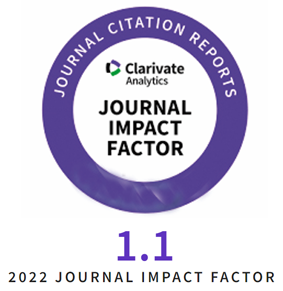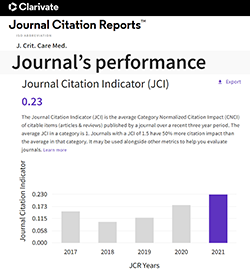Background: Feeding intolerance is a common yet serious complication in critically ill patients undergoing enteral nutrition. We aimed to conduct a meta-analysis to evaluate the risk factors of feeding intolerance in critically ill patients undergoing enteral nutrition, to provide insights to the clinical enteral nutrition treatment and care.
Methods: Two researchers systematically searched PubMed, Medline, Web of Science, Cochrane Library, Chinanews.com, Wanfang and Weipu databases about the studies on the risk factors of feeding intolerance in severe patients with enteral nutrition up to August 15, 2023. Literature screening, data extraction and quality evaluation were carried out independently by two researchers, and Meta analysis was carried out with RevMan 5.3 software and Stata 15.0 software.
Results: 18 studies involving 5564 enteral nutrition patients were included. The results of meta-analyses showed that age < 2 years old, age > 60 years old, APACHE II score ≥ 20, Hypokalemia, starting time of enteral nutrition > 72 hours, no dietary fiber, intra-abdominal pressure > 15mmHg, central venous pressure > 10cmH2O and mechanical ventilation were the risk factors of feeding intolerance in critically ill patients undergoing EN (all P<0.05). No publication biases were found amongst the included studies.
Conclusion: The incidence of feeding intolerance in critically ill patients undergoing enteral nutrition is high, and there are many influencing factors. Clinical medical workers should take effective preventive measures according to the risk and protective factors of patients to reduce the incidence of feeding intolerance and improve the prognosis of patients.
Tag Archives: enteral nutrition
A Retrospective Cohort Study of Traumatic Brain Injury in Children: A Single-Institution Experience and Determinants of Neurologic Outcome
Introduction: Traumatic brain injury (TBI) has become a significant cause of death and morbidity in childhood since the elucidation of infectious causes within the last century. Mortality rates in this population decreased over time due to developments in technology and effective treatment modalities.
Aim of the study: This retrospective cohort study aimed to describe the volume, severity and mechanism of all hospital-admitted pediatric TBI patients at a university hospital over a 5-year period. Material and
Methods: This was a single-center, retrospective cohort study including 90 pediatric patients with TBI admitted to a tertiary care PICU. The patients’ demographic data, injury mechanisms, disease and trauma severity scores, initiation of enteral nutrition and outcome measures such as hospital stay, PICU stay, duration of mechanical ventilation, mortality, and Glasgow Outcome Scale (GOS) were also recorded. Late enteral nutrition was defined as initiation of enteral feeding after 48 hours of hospitalization.
Results: Of the 90 patients included in the cohort, 60% had mild TBI, 21.1% had moderate TBI and 18.9% had severe TBI. Their mean age was 69 months (3-210 months). TBI was isolated in 34 (37.8%) patients and observed as a part of multisystemic trauma in 56 (62.2%). The most commonly involved site in multisystemic injury was the thorax (33.3%). The length of hospitalization in the late enteral nutrition group was significantly higher than that in the early nutrition group, while the PICU stay was not significantly different between the two groups. The multiple logistic regression analysis found a significant relationship between GOS-3rd month and PIM3 score, the presence of diffuse axonal injury and the need for CPR in the first 24 h of hospitalization.
Conclusion: Although our study showed that delayed enteral nutrition did not affect neurologic outcome, it may lead to prolonged hospitalization and increased hospital costs. High PIM3 scores and diffuse axonal injury are both associated with worse neurologic outcomes.
The Placement of Post-pyloric Feeding Tubes Using DRX-Revolution Mobile X-Ray System in an ICU. A Case Series
Enteral nutrition is crucial for ensuring that critically ill patients have a proper intake of food, water, and medicine. Methods to ensure this requirement should be initiated as early as possible. The use of PPF has several advantages compared to the use of a nasogastric feeding tube. In the present paper, the cases of three critically ill patients with a nonfunctional gastrointestinal system on admission to ICU, are detailed. Enteral feeding through a nasogastric tube by prokinetic agent therapy had been unsuccessful. The bedside placement of a post-pyloric feeding tube by the DRX-Revolution X-ray system is described.




